Charles Pakana (Victorian Aboriginal News):
I’m particularly pleased today to be joined by a highly-talented singer-songwriter, Ngiyampaa man, Pirritu Williamu Yuli, known also under his Anglo name of Brett Lee. Now, I first met Brett probably about six or seven years ago and became aware of his music, that has been described with great accuracy, mind you, as gentle, intricate, and highly melodic. And the man is smiling across at me from the studio there. Pirritu, thanks for taking time to talk with me today.
Pirritu:
Yeah, no, thanks for having me. What an intro. Thank you.
Charles:
You were not brought up in culture. You were adopted at birth by a white family who fortunately did support your connection to culture and Country. And I believe through your father’s connections with community, you were able to meet your birth parents at, what? 14 years of age, I believe.
Pirritu:
Yeah, I was 14. Yeah.
Charles:
So tell us a little bit about your youth and then we’ll get into what influenced you and what led you to become the artist you are today.
Pirritu:
My youth, yeah, I was always given that knowledge and understanding that I was Aboriginal and that I’d be able to go and meet my family one day, and that that was an important thing for me to go and do. And also identifying as an Aboriginal person was also a really important thing for me to do, and being proud of that. My dad and mum were always really fostered that pride in my Aboriginality, so I can’t be more thankful for them for doing that. So I was 14. The opportunity came about because my biological mother, she looked around at a few different adoption agencies when she made that decision and she picked that one because it offered an opportunity for me to reconnect with her down the track. It was part of the service kind of thing from that adoption agency.
Charles:
So this was always in your natural mother’s plan, was to eventually connect up with you?
Pirritu:
Yeah. Yeah. Yep.
Charles:
Really interesting that you do say that you’re thankful to your non-Aboriginal parents. How did that connection to culture, that support for you as an Aboriginal man, how did that actually come about? Because it seems strange that you’re going to get that support from two white people.
Pirritu:
I think my dad always had a lot of respect and awe for Aboriginal people. And in all of his work, in all of his facets of his life, really tried to connect and support Aboriginal people wherever he could. And for that kind of man and the times, I think that is something that he can be proud of. And I’m definitely thankful for that because now I have a really beautiful connection with the Aboriginal side of my family, and I see that as a really important part of my life. And I’ve always worked myself to contribute and benefit the Aboriginal community wherever I’ve been. [inaudible 00:02:57].
Charles:
And share with us a little bit about the lead up to that time, when you were 14, where you did get to meet your biological parents. That must’ve been an episode of a degree of stress or anticipation for you.
Pirritu:
Yeah, it was really exciting. I think the interesting thing about it is that I was 14 and the request came through from the adoption agency, and I wasn’t really ready for it, I think, in some ways, but that was probably a good thing because I had time after that to really process what it meant. If that had have all happened when I was an adult, maybe it might’ve looked a bit different, and I think it really does show that having connection to family is an important thing for Aboriginal people. For me, it’s proof of that. My biological mother, she wrote letters to… It feels weird calling her that anyway, I just see her as my mum now. I’m 38 years old now. She’s been a part of my life for 24 years, so I just really see her as one of my mums. But yeah, she wrote letters to the adoption agency to give to me, and so when that opportunity came about, I got to read the letters. It definitely was inspiring for me. She wanted me to follow my passions and do the things that I believed in. Yeah.
Charles:
Well, talking about passions, when did this passion for music and the realization, this is the path you wanted to follow, when did that emerge and what brought it about?
Pirritu:
I think it was always within me, to be honest. I always had music in my bones and I always did get a special feeling from experiencing music, all the way through my childhood. But my family that I grew up with, you could almost call them amusical, nonmusical. I don’t think I’ve ever heard my mum or dad sing, and I’ve never seen them playing an instrument before.
Charles:
Were you brought up with music on the radio, or on records, or CDs, or anything like that?
Pirritu:
Not so much. I started buying CDs myself when I was a teenager and stuff, because I did really discover how music made me feel and how it made me think as well, which I really liked. So I met my mum when I was 14 and I used to go and stay with her during school holidays sometimes. So I’d catch a train from Foster, where I grew up, down to Sydney and I’d stay with her for a couple of days, or a week, or something. And I did that a couple of times as a teenager and she’d had a piano, and a guitar, and a drum and things.
Charles:
So she was musical.
Pirritu:
Yeah, yeah, little instruments like that sitting around, and it always really captured my attention, and I started just mucking around with them, and just really fostered this like, oh man, I wish I could play that thing.
Charles:
So when did you pick up a guitar and was guitar your first instrument?
Pirritu:
No. Yeah, so that was as a teenager, and then all through those years I was a really serious sports person and so I never really had the time to commit to learning one of those instruments. And so when I was 19, I decided to take a bit of time away from the sport to recover an injury that I had in my knee, and had a bike accident and things. And the very first thing, it was probably the day that I made that decision, I went and got myself a little cheap ukulele, got on the internet, started looking at chord shapes and chord progressions, and started really looking at music theory, and what it was, and how to construct a song and things like this.
Charles:
So you’re self taught?
Pirritu:
Yeah, pretty much. I just taught myself on a ukulele, the basics, I think. And because I did sport for so long, I had a really strong capacity to focus for a long time. I’d almost not eat breakfast, lunch and then I’d be at the end of the day at dinnertime going, well, I’ve been playing this thing all day.
Charles:
[inaudible 00:07:05].
Pirritu:
I probably should go and have a feed. So I think I probably progressed really quickly at the start of my musical journey. So I was about 19, and-
Charles:
But at what point did you think that you could be this man who could make a career out of it?
Pirritu:
Well, I do have a day job. [inaudible 00:07:24]-
Charles:
I know you do which is why I laughed at you.
Pirritu:
It was a pretty slow realization and it is something that I’ve enjoyed doing from time to time, just focusing on music. But I don’t know, I think when I moved to Melbourne, around 2013, people were like, “You got to start recording, man. You want to do more gigs, you got to start recording your songs and putting it out there.” And I didn’t really get round to doing that properly until just a couple of years ago. So yeah, I was probably a bit slow to the party with the realization of that, but I’m here now and playing music, and [inaudible 00:08:08]-
Charles:
But is it something that you believe that you could conceivably do, that it could be your full-time work?
Pirritu:
Oh yeah, absolutely. Yeah, I think so. Yeah, it’s hard though. It’s hard work and yeah, shout out to all the musos out there grinding away.
Charles:
[inaudible 00:08:22]. What inspired your style of music though?
Pirritu:
Oh, I don’t know. I listened to a lot of different musicians. Uncle Archie, I love his storytelling and his melodies. Paul Kelly, a fellow called The Tallest Man on Earth, really inspired a lot of my guitar work and finger-picking style. So that’s where a lot of that came from in my music, is listening to his early work. Yeah.
Charles:
And we’re going to play one of your more recent songs now in this podcast, and we have permission from your manager, thank goodness. So tell us a bit about this song that we’re going to be playing.
Pirritu:
I mentioned earlier that my mum wrote me letters before I met her, kind of thing. I did get to read all of those letters before I met her and I mentioned, yeah, they were always inspiring and encouraging me to follow my passions and do the things that I love, and so this song was inspired by that. It’s a song called Stay Strong, and I think it’s also a message for our mob after last year’s referendum vote. You just got to keep pushing on that work. There’s a lot of work still to be done. The no vote doesn’t really hold us back.
MUSIC:
Charles:
That song really is in quite a bit of contrast. Well, from my very unmusical ears, to your earlier work, and you mentioned your fingerpicking style, that was really quite evident in Waternests and other songs of that time. Of only such a short period of ago, we’re talking, what? Four or five years ago, for goodness’ sake, this is a lot more produced. Is that a direction in which you’re going?
Pirritu:
Yeah, I’ve been playing solo for a long time, which I do really enjoy and it’s a part of my musical expression that I’m really proud of, and it’s something that I’ve worked hard at. But sharing these songs with other musicians and performing them with a bigger ensemble is also really powerful and something that I want to develop in my act. And so that’s why I made that decision to release this second album with a bit more production behind it, a few more musicians, and just to really put together a sound that I really like.
Charles:
From what I’ve been able to gather, you’re also using your music to further your own knowledge of the Ngiyampaa language by embedding it into your songs. I was reading on the NITV an article, it was several years old, that you’d pick up one or two words and think, “Okay, I’m going to build a song around that.” Rather unique way to start a song, but then again, thinking about how other songs in history have gone down, is that now an ongoing part of your style of songwriting?
Pirritu:
Yeah, it is. I think it’s a good moment to just mention that the Ngiyampaa Language Project has just come to an end, which means Aunty Leslie Woods has submitted her PhD in linguistics and she’s rewritten the whole of the Ngiyampaa grammar that was written in the 1970s.
Charles:
And apparently that was such a complex thing that she said that you needed to have a PhD in linguistics just to understand that particular document.
Pirritu:
Yeah, yeah. Well, that was her project for that PhD. So congratulations to Aunty Leslie and we’re all really proud of her, but being a part of that project has really inspired me to use music as a vehicle to learn as much as I can and share that with my daughter as well. And bring that language back off the page and start using it with our mob, which is a really fun thing to do, to see my little daughter walking around the house, like [inaudible 00:15:27]-
Charles:
Because she’s, what, four or five now?
Pirritu:
Oh, she’s six now.
Charles:
Wow. Okay.
Pirritu:
Yeah.
Charles:
Time has flown.
Pirritu:
I have been working with that project in other ways as well. So just the other day, we translated the Heads and Shoulders, Knees and Toes song, and I did a quick little recording for the project and posted it up on our page to share with all the Ngiyampaa people and stuff who follow that page. And we’ve got plans to do a whole heap of other translations of books, and nursery rhymes, and things like that.
Charles:
I’m interested to understand where you as an artist, a culturally grounded artist, see yourself in promoting reconciliation, self-determination, combating racism, that whole plethora of issues that surround First Nations here in Australia. Do you think that you have a key role to play and maybe all artists should be lending their support, First Nations artists, should be lending their support?
Pirritu:
Yeah, I think if you are standing up in front of people, that stage is platform for you to influence and spread a good message for our mob, then there’s a responsibility there. And so I do what I can and I think there’s some really great examples of musicians out there doing it in a really powerful way, and probably more powerful than me but I’m doing my best to do what I can. But yeah, I think there’s a platform there for artists to educate and just inspire everyday people to do what they can in every facet of their life, to work towards reconciliation.
Charles:
Do you find challenges though, whether it’s racism that’s flung at you because you’re a First Nations artist, or simply a lack of understanding in the general community of what you’re seeking to achieve through your art?
Pirritu:
Oh, always. There’s always hurdles to step over, and find ways through, and navigate. And I think if you can, as an Aboriginal person, be the bigger person and find an amicable way through those challenges, then it gives you more power in doing that.
Charles:
We also spoke before the interview about the different styles of activism and advocacy, whereas a lot of speakers that get out there, they get very angry. You’re there and you are very peaceful and you’re getting the message across with your music. You mentioned that there’s a place and a time for all these different levels and types of activism and advocacy. Talk to us a little bit about that, brother.
Pirritu:
I’ve had many yarns with friends about this, and I feel like every activist, every artist, needs to stand in their authentic self and be who they are in their approach. And I feel like every one of those different approaches are an important voice in that collective Aboriginal voice. And so having those figures that are really strong, and powerful, and in your face, and strong, they have a really important place in the activism of our people.
Charles:
Do you see that you provide a balance to it because they’re so-
Pirritu:
Yeah. Yeah, I feel like there’s a-
Charles:
You’re calm.
Pirritu:
Yeah, yeah.
Charles:
[inaudible 00:18:32] I admire that so much. That’s an important balance, don’t you think?
Pirritu:
Yeah, definitely. I think you’ve nailed what I’m trying to say is that there’s a balance. If there is a balance, then everyone can listen. There’s some people that might not be ready to hear it in that way, and there’s other people that are ready to hear it in another way and so on. So there’s a place for all of us to do what we do and all of it is powerful, all of it is necessary.
Charles:
And what’s for the future?
Pirritu:
I’m working on a bunch of new songs, which I’m really excited about. Yeah, hopefully-
Charles:
Is this is a new album or just some singles we’re looking at?
Pirritu:
I reckon there will be an album at some point. But yeah, there’s at the moment just a bunch of new songs that are sitting there and I’m slowly ticking away working on. Yeah, really excited to start sharing those, probably towards the end of the year.
Charles:
People can get your music via Spotify and where else?
Pirritu:
Anywhere you listen to music, you should be able to find, if you spell my name correctly, you should be able to find it.
Charles:
Just so people know, it’s P-I-R-R-I-T-U, and we will provide links on the website, along with the transcript of this interview. So if you do need to get a bit more information about Pirritu’s work, then get on to vicaboriginalnews.com.au, search for Pirritu, and you will find all the links that you will need on that particular page. Pirritu, thank you so much indeed for your time, really appreciate it. And of course, when the next album comes out, we may even do a bit of an exclusive here on VAN Talks.
Pirritu:
Sounds great. Awesome. Thanks for having me.


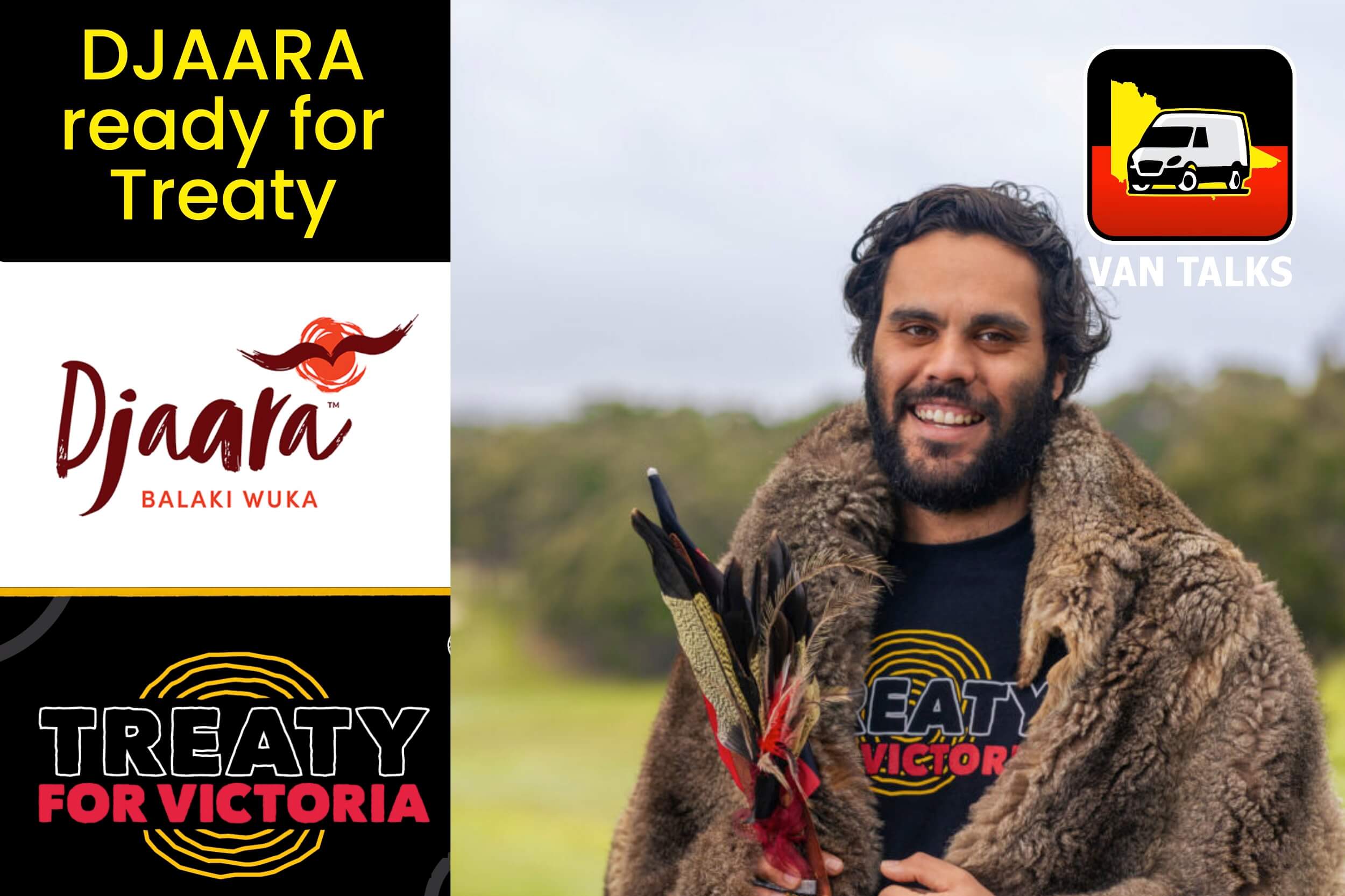
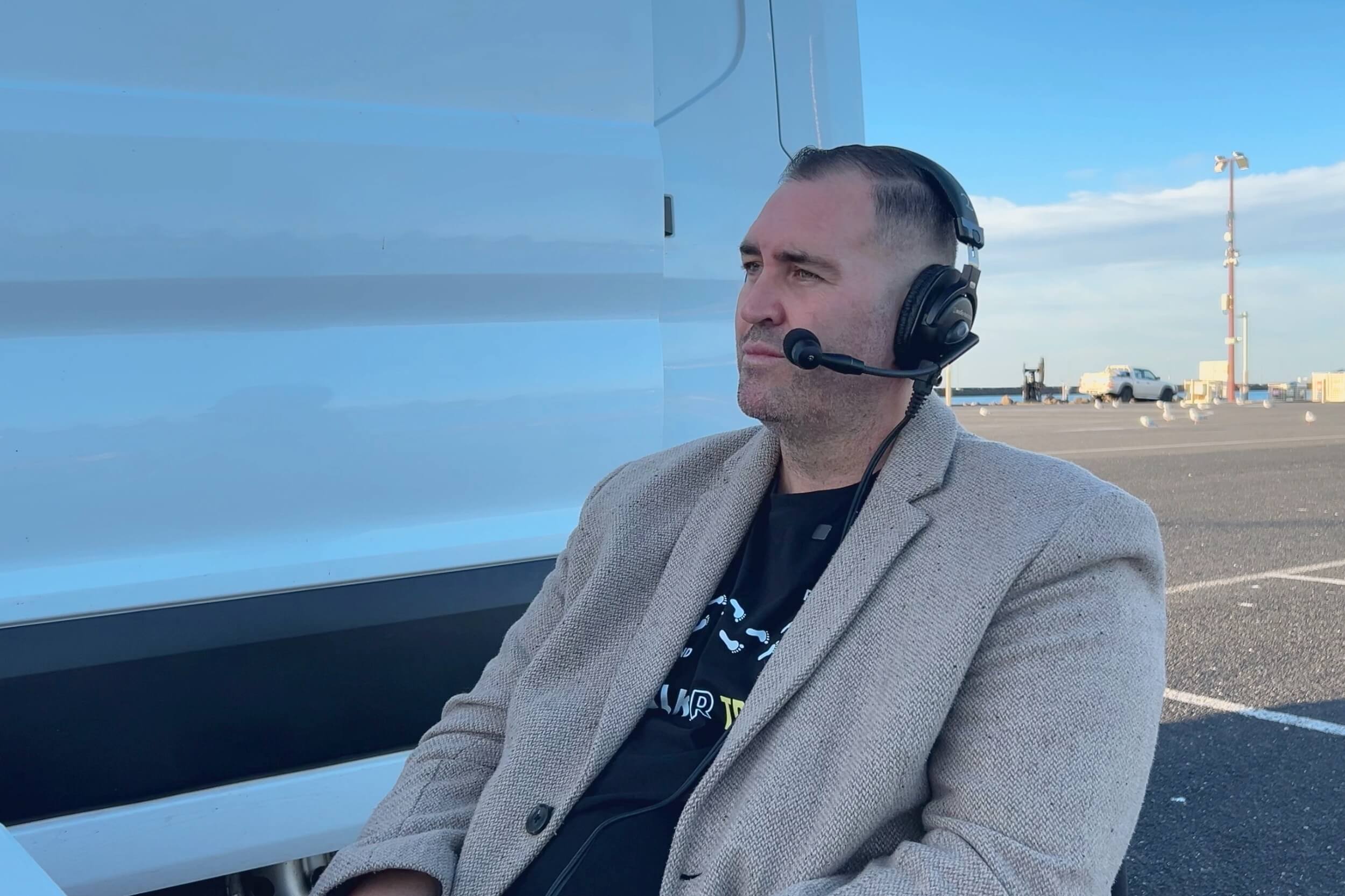
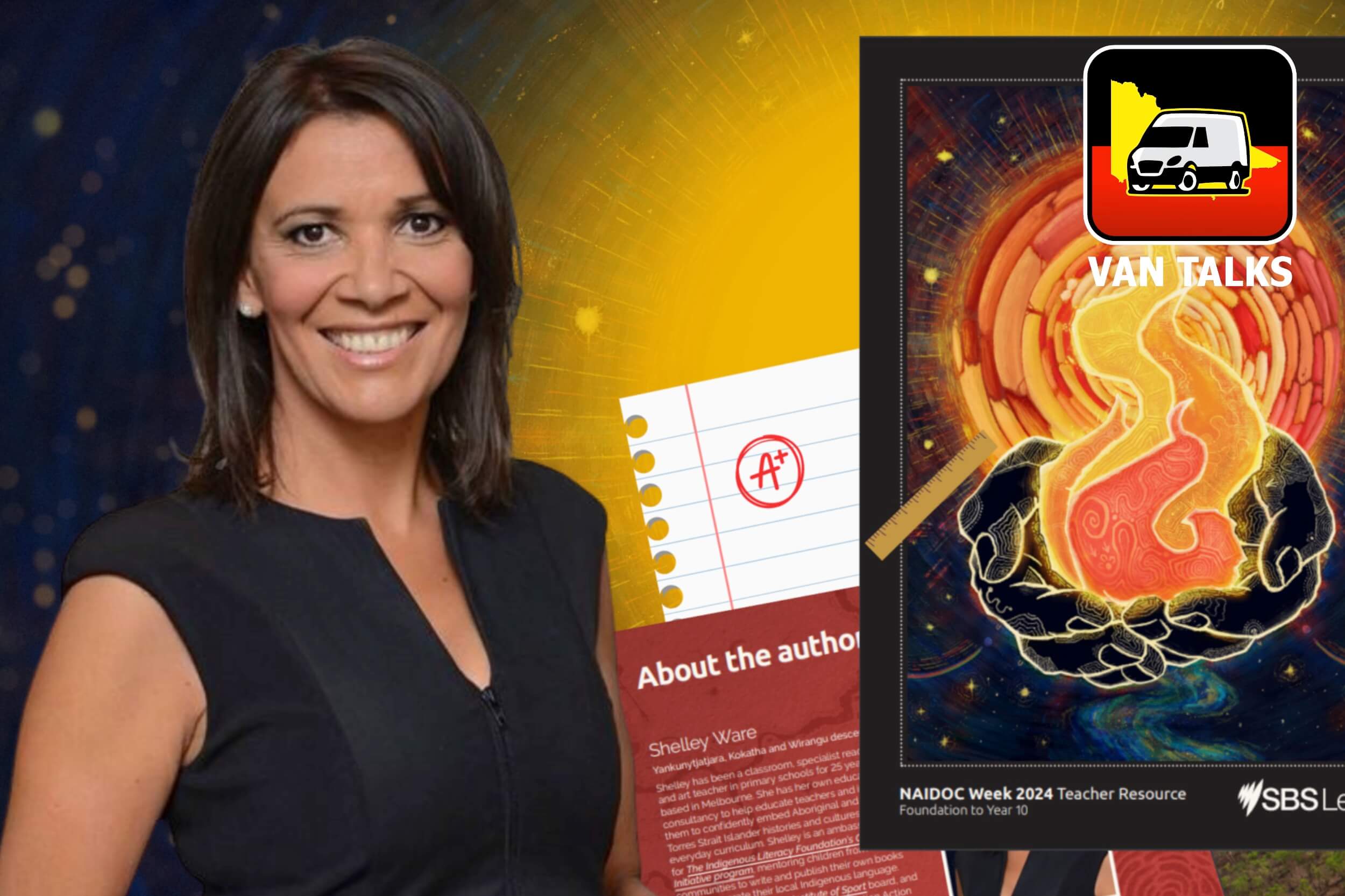
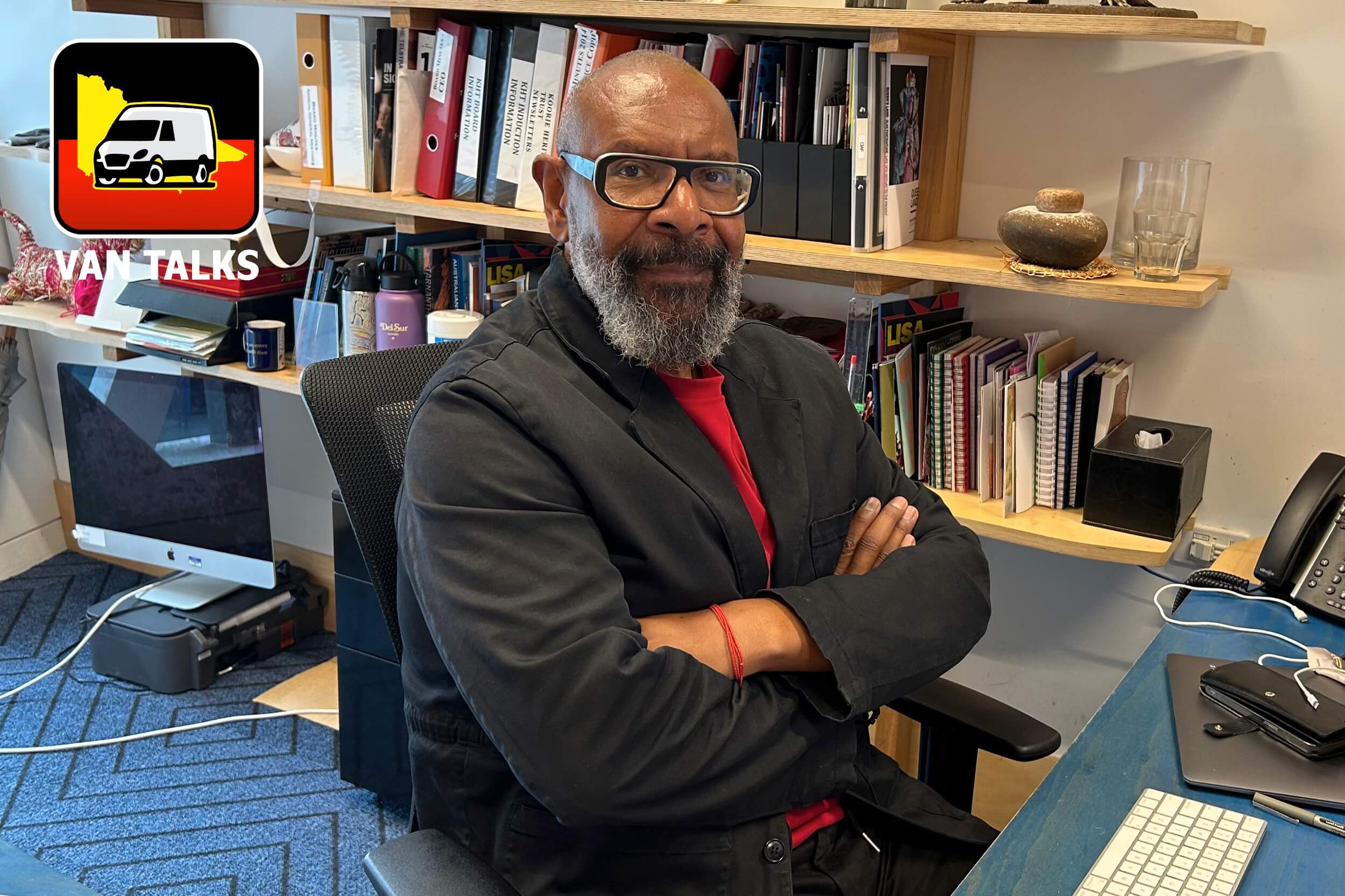
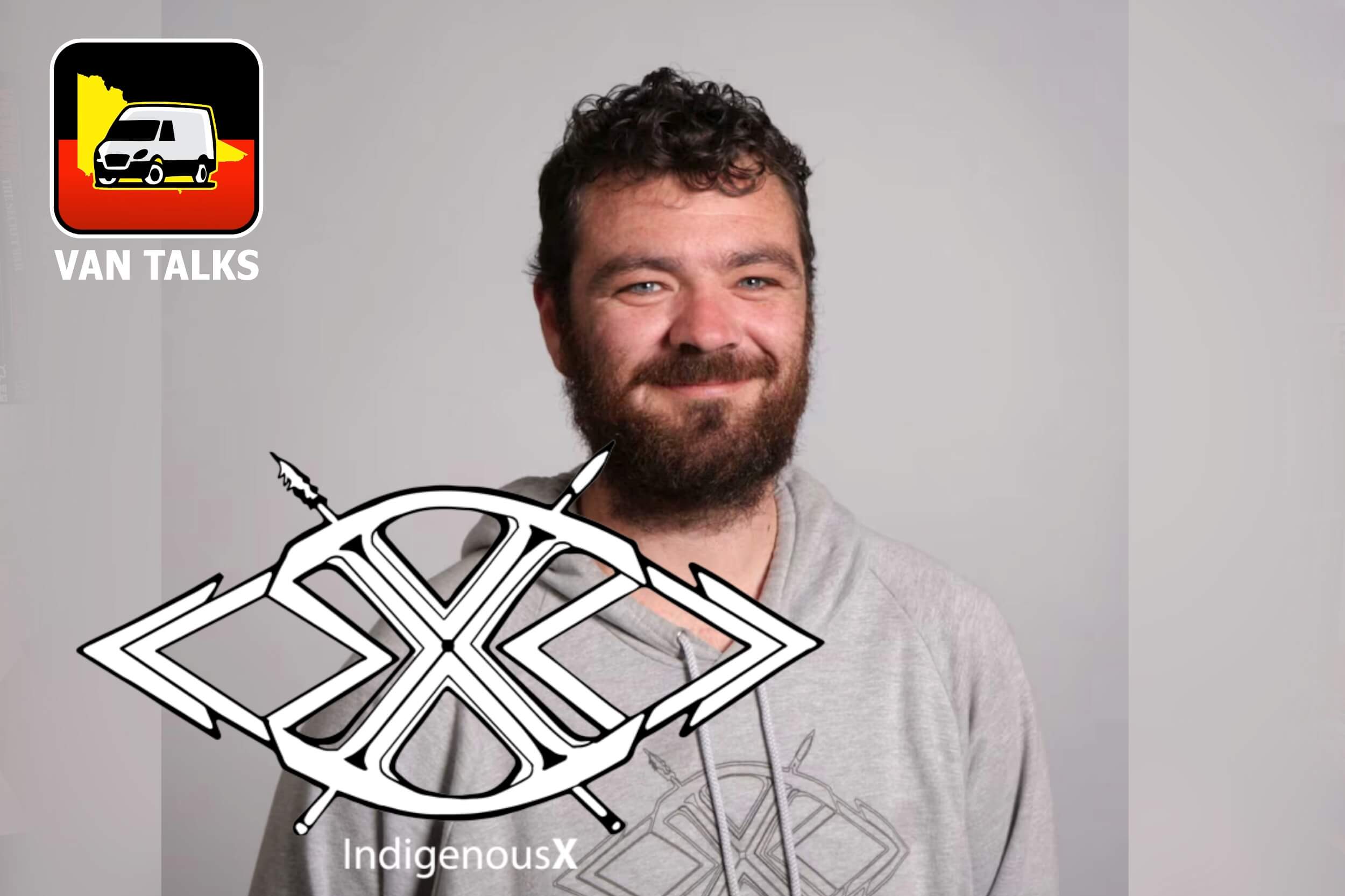

0 Comments